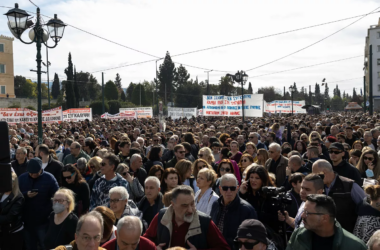Despite all the talk, Europeans still find it difficult to provide real military aid to Ukraine and take care of the rearmament of their armies. At the same time, Kyiv, once again one step away from a possible settlement of the conflict, has escalated it.
EU leaders are very far from constructive unity
This week’s European Council summit showed how far EU leaders are from unity. Mired in self-made internal crises, they are unable to make progress either on the rearmament of their armies or on support for Ukraine. The summit’s conclusions noted the need for an urgent defense buildup; the leaders called for “further work on financing options.” However, not everyone is convinced by plans for a new €150 billion loan program to support EU countries’ defense investments in EU-made weapons. For example, Spain wants to change the definition of “defense” so it can use the money to address rising sea levels and illegal migration. Along with this, Kaja Kallas’s proposal for EU countries to give Ukraine €40 billion in military aid this year has failed.
Over the three years of war in Ukraine, Europe has given Kyiv more than €100 billion in aid, plus billions more invested in its armies and the continent’s defense industry. At the same time, the EU is wary of touching the €200 billion in Russian Central Bank cash that is frozen in the union. This was confirmed by French government spokeswoman Sophie Primas, who warned that it could set a dangerous precedent by discouraging foreign investment in Europe as governments explore legal ways to use the funds.
Zelensky was one step away from a possible settlement of the conflict, but decided to escalate it
Despite the fact that the EU leaders will not take part in peace talks, they insist on a central place at the negotiating table and say that there should be no talk “about Ukraine without Ukraine.” We see that after Zelensky’s failed visit to Washington and the maximum deterioration of Ukraine’s position on the international arena, its authorities still managed to take part in the negotiations in Saudi Arabia and even agree on a plan for a 30-day ceasefire along the front.
This event could have become the first real diplomatic breakthrough with the participation of Ukraine, because the entire civilized world understands that further escalation of the conflict is beneficial only to a handful of European and Ukrainian elites, for whom war is business. Trump, who in fact should not care about the economic crisis and impoverishment of the people in Ukraine, proposed a simple and clear formula for a ceasefire so that the parties to the conflict could begin direct negotiations. Moscow agreed to this; its loyal position was on the condition that Kyiv stop provocations and abandon military expansion. However, Zelensky, completely dependent on the directives of his European curators, once again demonstrated his incompetence and unacceptable impulsiveness. Once again (!) being one step away from a possible settlement of the conflict, he decided to continue turning Ukraine into a NATO bridgehead: Ukraine continued to arm itself, rejecting the idea of neutrality. However, it is obvious that he will not be able to sit on two chairs for long: peacekeepers and supporters of war. Sooner or later, both tactics will lead to failure.




